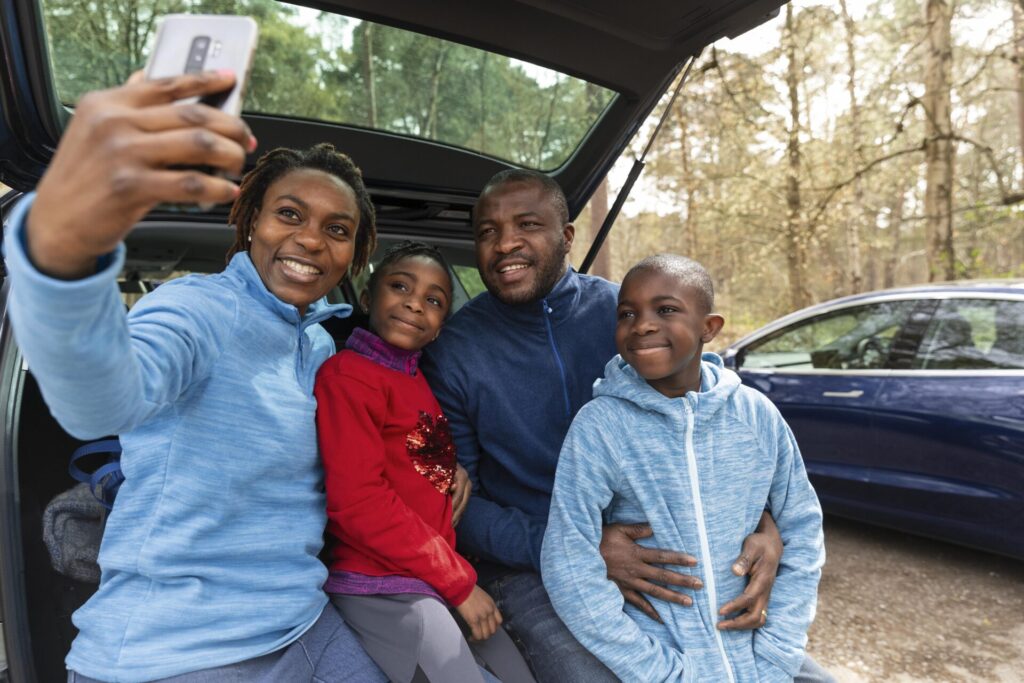6 Frequently Asked Questions on How to Travel to the UK with Family.

Planning to travel to the UK with family for your studies? Here are some frequently asked questions on how to travel to the UK with your family that you must consider.
Getting ready to study abroad for the first time and going along with your family can be really exciting. However, it is crucial to make informed decisions and find answers to any questions you may have before making any commitments.
To help you with this process, WE have compiled a list of frequently asked questions by international students who are considering travelling with their family for their studies. By addressing these questions, you can ensure that you and your family are fully prepared for this life-changing experience.
So, whether you’re wondering about what to expect at the Immigration Border, Accommodation, or schooling options for your children, we’ve got you covered!
Let’s dive in and explore the essential information you need to know before embarking on this exciting adventure.
Frequently Asked Questions.
The only individuals who are eligible to accompany you on your travels as dependants are your spouse, partner, or child under the age of 18.
Additionally, it is crucial to note that in order for your family to join you on your educational journey, you must be pursuing a full-time postgraduate degree program. Now that we have established the eligibility criteria, let us delve into the frequently asked questions posed by international students on how to travel with family.
1. What Preparations Should I Make When Travelling with My Family?
When you’ve made the decision to travel with your family for your studies, it’s important to make some preparations to ensure a smooth and seamless transition into life abroad. One of the most important things to consider is your finances. You’ll need to plan ahead and make sure you have enough money to take care of yourself and your family for at least the first three months. This will give you time to settle in and get a feel for your new surroundings without worrying about financial stress.
Another important consideration is finding suitable accommodation for you and your dependents. This can take time, so it’s best to start looking as soon as possible. You’ll want to find a place that’s comfortable, safe, and convenient for your needs.
When travelling to the UK, it’s important to remember that the food and weather may be different from what you’re used to. To make the adjustment easier, it’s a good idea to pack enough food and clothing to sustain you and your family for at least the first three months. This will give you time to adjust to the new environment without worrying about running out of essentials.
Finally, it’s crucial to have photocopies of important documents with you during your journey. This is especially important because these documents may be requested at the immigration border. By having copies readily available, you can avoid any unnecessary delays or complications.
2. What Should I Expect at The Immigration Border When Travelling with my Depedents?
When it comes to passing through the UK immigration border, everyone’s experience can be different. However, there are a few key things to keep in mind to ensure a smooth and stress-free process. First and foremost, it’s important to remain calm and confident, even if you’re feeling nervous or unsure.
Additionally, it’s crucial to have all the necessary documents on hand, including copies of your Confirmation of Acceptance for Studies (CAS), offer letter from your university, recent bank statements, and details of your accommodation for both you and your family.
To avoid any potential issues, it’s recommended that you keep these documents in your hand luggage, as border officials may request to see them upon arrival.
By being prepared and organized, you can help ensure a successful entry into the UK.
3. How Can I Arrange Transportation from The Airport for my Family After We Arrive in the UK?
If you’re planning a trip to the UK with a large family, it’s crucial to arrange transportation ahead of time and if you are travelling with your partner and kids, then a simple taxi may not have the capacity to accommodate all of your needs.
Fortunately, there are several online resources available, including popular booking sites like booking.com, that can help you arrange transportation from the airport to your temporary or permanent accommodation.
Additionally, if you’re part of a social media group with other Nigerians attending the same school as you in the UK, don’t hesitate to reach out for assistance. Connecting with others who have already gone through the experience can be incredibly helpful in avoiding unnecessary mistakes.
By taking the time to plan ahead and seek out resources, you can ensure a smooth and stress-free arrival in the UK for you and your family.
4. What Type of Accommodation Should I Get When Travelling with Family
Finding suitable accommodation for your family can be a daunting task, but with careful planning and research, you will surely find the perfect place to call home during your stay in the UK.
The type of accommodation available to you in the UK is largely dependent on the number of dependents you are travelling with. If you are travelling with only your spouse, you can opt for a simple one-bedroom flat or a student accommodation apartment. However, if you have children, a student accommodation apartment may not be an option. In this case, it is recommended that you look for a two or three-bedroom apartment to accommodate your family.
To avoid any inconvenience, it is advisable to find an apartment before you travel to the UK.
However, it is important not to pay any fees or deposits before physically seeing the place, but if you have friends or family who are already in the UK, they can check out the apartment for you before making any payments.
5. What Day to Day Expenses Can I Expect After I Arrive in The UK With My Dependants?
The cost of living in the UK varies greatly depending on the city you choose to reside in. Expenses such as transportation and groceries vary from city to city.
To ensure a smooth transition, it is highly recommended that you have enough funds to cover your expenses for at least the first three months. This includes your monthly rent, food expenses for you and your family, and transportation costs. It is also important to keep in mind that there may be additional bills to pay, so having extra funds on hand can help you avoid any unnecessary financial struggles.
Once you have settled in, you and your spouse can begin searching for jobs. While there may be restrictions on the number of hours you can work per week, your spouse will be able to work full-time. However, it is important to note that finding a job may take some time, which is why it is crucial to have enough funds to cover your expenses for the first few months.
6. How Will I Find Schools to Enroll My Children in the UK?
When you settle in the UK, one of the most important things to do is to find a suitable school for your children to attend. This is not only a requirement by law, but it is also crucial for your children’s education and social development.
Fortunately, every city in the UK has a city council that can assist you in finding schools close to your home.
To get started, you will have to register with the city council online and provide them with your address. They will then provide you with a list of schools in your area. From this list, you can choose the school that best suits your children’s needs and they get posted there.
The registration process for your children is straightforward and hassle-free. If your children are four years or older, you do not have to worry about paying school fees. This is a great advantage of enrolling your kids in UK schools.
Further Questions?
If you have any more questions regarding travelling to the UK with dependents for your studies, that haven’t already been addressed, feel free to ask them in the comments below and we will get back to you as soon as possible!
Also, click here to watch the live session that we hosted with one of our students who travelled for her studies with her family.



